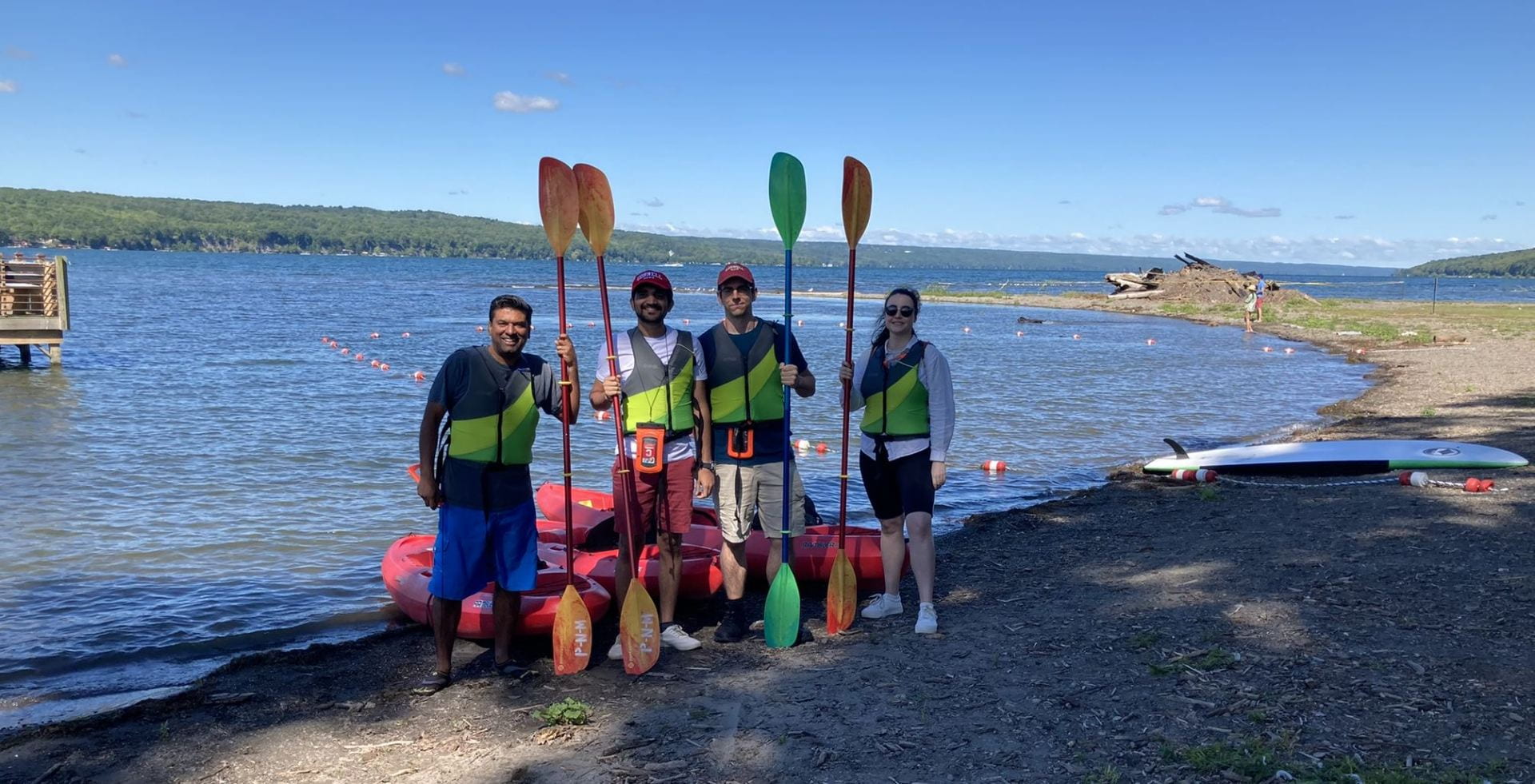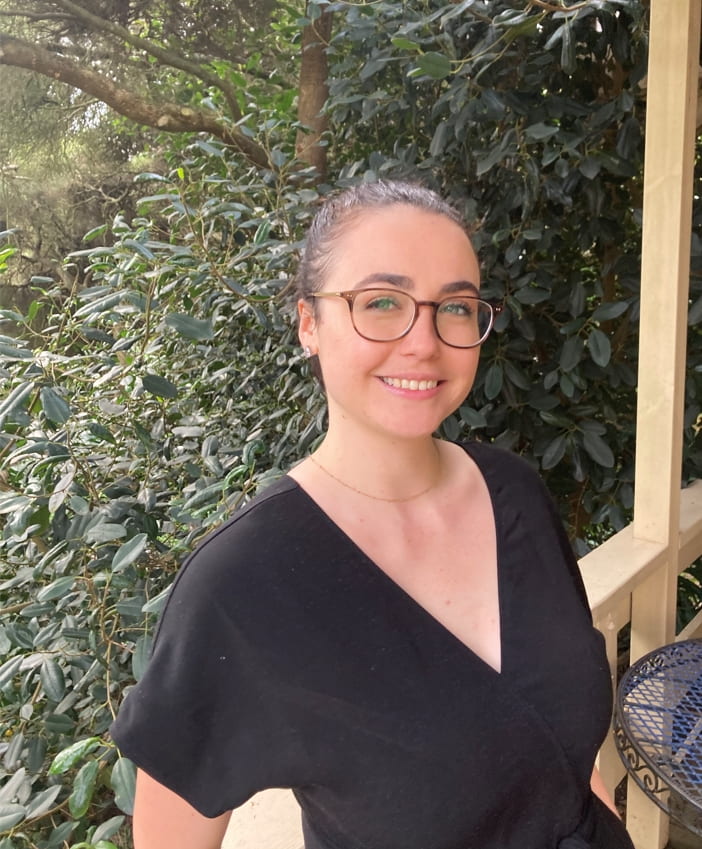Author: Steven Graham Adie
August 2022: Group kayaking adventure on Cayuga Lake
Summer is great time to be outdoors in Ithaca…and kayaking is a great way to have some fun outside the lab!

June 2022: Our light-sheet PF-OCE paper published in Nature Communications
This paper presents the use of light-sheet photonic force for parallel mechanical loading, and demonstrates high-throughput quantitative 3D micromechanical imaging. We quantify the micromechanical heterogeneity of fibrous collagen matrices and perform live-cell imaging of cell-mediated ECM micromechanical dynamics. Our 4D imaging of micromechanical dynamics of cell-mediated ECM deformations enabled observations that, to our knowledge, have never been reported by other techniques. For further information check our paper Light-sheet photonic force optical coherence elastography for high-throughput quantitative 3D micromechanical imaging.
June 2022: New R01 grant to integrate computational, adaptive optics and other hardware approaches for ultra-deep OCT
This grant proposes to integrate aberration-diverse OCT (an approach recently developed by our group), long wavelength imaging in the 1700nm window, adaptive optics to correct sample-induced aberrations, and complex conjugate spectral-domain OCT to overcome the (current) multiple scattering limit in OCT. For further information see our grant listing at NIH RePORTER Overcoming the Multiple Scattering Limit in Optical Coherence Tomography.
May 2022: Prof. Adie’s Modern Biomedical Microscopy class presents “Magic of Optics!” activities at Ithaca Sciencenter
For further information see the BME website article Students present optics activities at local science museum.
May 2022: The group welcomes Dr. Santosh Balakrishnan with hike at Robert Treman State Park
 Santosh earned his PhD in Biomedical Engineering from the University of North Carolina at Chapel Hill. His doctoral research focused on developing and validating an endoscopic Optical Coherence Tomography (OCT) system for the assessment of large airway disorders. Subsequently, he was a post-doctoral research scholar at the Wellman Center for Photomedicine, Massachusetts General Hospital, Harvard Medical School, Boston. During his stint at MGH, he was involved in the development of a Polarization-Sensitive, intravascular, OCT system. Prior to pursuing his PhD, Santosh worked for several years with some of the largest health care companies in different roles related to X-ray imaging. He holds a Bachelor’s degree in Electronics & Communication Engineering from the National Institute of Technology, Tiruchirappalli, India.
Santosh earned his PhD in Biomedical Engineering from the University of North Carolina at Chapel Hill. His doctoral research focused on developing and validating an endoscopic Optical Coherence Tomography (OCT) system for the assessment of large airway disorders. Subsequently, he was a post-doctoral research scholar at the Wellman Center for Photomedicine, Massachusetts General Hospital, Harvard Medical School, Boston. During his stint at MGH, he was involved in the development of a Polarization-Sensitive, intravascular, OCT system. Prior to pursuing his PhD, Santosh worked for several years with some of the largest health care companies in different roles related to X-ray imaging. He holds a Bachelor’s degree in Electronics & Communication Engineering from the National Institute of Technology, Tiruchirappalli, India.
April 2022: Welcome Dr. Meg McFetridge!

Meg completed her B.S (Hons) in Biochemistry and Molecular Biology at The University of Western Australia, Perth, advised by Dr Yu Suk Choi and Dr Robert White before moving to Melbourne to complete her PhD in Biomedical Engineering at Monash University. Advised by Prof. Sharon Ricardo, Prof Mibel Aguilar and Dr Mark Del Borgo, she developed and characterized self-assembling beta-peptide hydrogels for the delivery of cell-based therapeutics for treatment of chronic kidney disease. Her current research as a Fulbright Scholar is focused on stem cell mechanosensation at a distance, where she will utilize optical coherence microscopy to track cellular responses to mechanical stimulation across large hydrogel volumes over time.